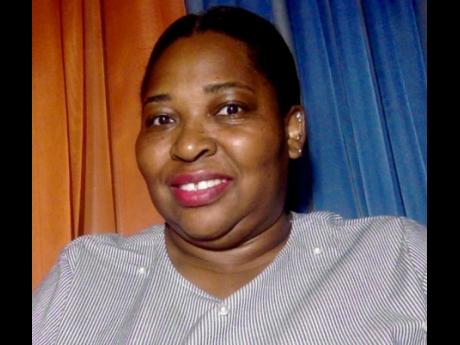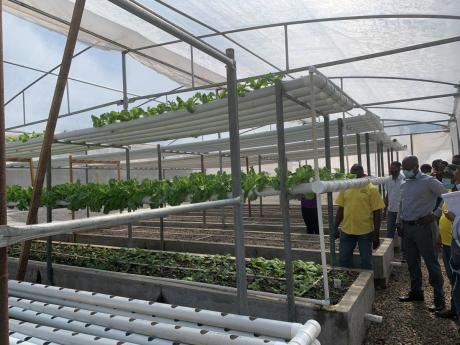CASE – One college, many opportunities
The College of Agriculture, Science and Education continues to be a viable tertiary option for many of Jamaica’s youth who are serious about making an impact on agriculture, science, and teacher education. As an institution whose revised strategic mission and vision are hinged on becoming a world-class university within the next five years, it is imperative that CASE provide an enriching and dynamic environment for our students.
ACCOMMODATING NON-TRADITIONAL STUDENTS
Currently, non-traditional students make up almost 75% of students enrolled in post-secondary institutions worldwide. That number is expected to increase, therefore, successful institutions must move towards a flexible learning eco-system with diverse course content and delivery methods in the online space. The onset of the COVID-19 pandemic has forced CASE into the fully online space much quicker than it had expected. Over the last year, the use of our online platforms by faculty and students has grown exponentially. Students are demanding flexible learning strategies in the online environment. These recent demands by our students put more emphasis on the need to ‘build out’ the college’s online education platform.
AFFORDABILITY OF COLLEGE EDUCATION
If we are to create a pathway to economic success for our students, we must ensure that the doors of tertiary education remain open. CASE fully understands that rising tuition costs, among other factors, and now-depleted income streams caused by the COVID-19 pandemic, have made it extremely challenging for students to afford higher education.
The college administers scholarships offered by industry partners, alumni, and private citizens as part of their social responsibility. We have recently secured £3,000 for students who are natives of St Thomas and are enrolled in our Environmental Science programme.
Other industry partners have also provided scholarships for deserving students:
• The SEPROD Foundation undertakes the payment of full tuition for five deserving students annually.
• The Caribbean Broilers Group has been active in our Youth In Agriculture programme and provides a full scholarship named in honour of former Minister of Agriculture the late Roger Clarke. This prestigious award is given to a second-year student for the remaining two years of study in an agriculture programme.
• Alcan Rio Tio provides scholarships to students who reside in the bauxite belt in the parishes of St, Ann, Manchester, and Clarendon.
• The Ole Farmers’ Association of North America (OFANA), our overseas alumni, has also provided over US$50,000 in scholarships since 2012.
THE ISRAEL WORK-STUDY PROGRAMME
CASE is preparing graduates for a global economy and continues to seek opportunities to provide meaningful opportunities for our students. In 2019, CASE inked a landmark deal with the government of Israel through Israeli officials here in Jamaica. Subsequently, 15 students departed Jamaica for Israel in November of the same year. Another strong partnership with the NCB Foundation ensured that students' airfares were paid to the tune of J$5.6million.
During their 11-month sojourn, the students worked on various farms and gained first-hand knowledge and experience in agriculture technologies and techniques used in Israel’s highly technological agriculture sector. The students were also exposed to pedagogy at the Ramat Negev International Training Center, where they attended classes weekly.
Since their return in November 2020, they have found gainful employment at various agriculture organisations while completing their final semester at CASE. Armed with expertise and money earned from their paid internships, most have started micro agri-enterprise businesses.
These micro enterprises include organic honey production, sweet potato production, deep-water culture hydroponic systems, and strategic pasture and herd production and management. Another 15 students from CASE will travel to Israel this year as part of the programme.
CORPORATE INSTITUTION PARTNERSHIPS
Acknowledging the need to provide our students with higher quality and more diverse tertiary education, partnerships with local, regional, and international entities is critical to align teaching and learning at the college with labour-market demands. Government and non-government agencies, as part of their corporate social responsibility, provide opportunities for our students to hone their competence in accordance with industry standards. These public-private partnerships include:
Early Childhood Diagnostic Centre
Robust partnerships with the Ministry of Education and Youth have enabled us to provide our teacher trainees with enriching experiences in the classroom at the early childhood, primary, and secondary level as part of the practicum component of the teacher-education programme. The construction of the Early Childhood Diagnostic Centre further demonstrates our commitment to working in partnership with the Government of Jamaica to achieve its education targets, particularly for early childhood education development.
Plant Bio-Technology Centre
The plant bio-technology centre, funded by the Ole Farmers’ Association of North America, will improve the quality of instruction in plant science and provide clean planting materials for our farmers to guarantee sustainable seed availability and crop production. This ultra-modern centre will be fully furnished to begin operations in the upcoming academic year.
Abattoir
A state-of- the art abattoir is very near completion and will serve the college as well as local farmers to ensure safe and hygienic slaughtering of meat according to industry standards.
Tunnel Ventilated Broiler Unit
The 20,000 capacity tunnel-ventilated broiler unit is also near completion and will give our graduates industry experience in broiler production and the use of cutting-edge technology in broiler production. This unit was funded by the GOJ Adaptation Fund Programme-Agriculture.
Aquaponics Unit
Through strong public-private partnerships with the Environmental Foundation of Jamaica and The Sandals Foundation, CASE was able to complete the Aquaponics Unit, which has incorporated climate-smart agricultural technologies into the curriculum.
TECHNOLOGICAL ADVANCEMENT
Technology has become integral in our college as we move further into the digital age. The use of data science and analytics to drive research and innovation will become critical to our existence. The use of automation and simulation must be second nature to better understand and deliver content in our programme offerings and cater to the demands of non-traditional students in the online space. The Universal Service Fund J$87.5 million dollars upgrade of the information technology (IT) systems at CASE has brought into sharper focus the many opportunities for course content delivery, remote modelling and automation of agricultural systems, college administration, and student- information management. As we move to attain university status, technology will revolutionise the traditional teaching and learning processes at our institution.
Indeed, we are one college with many opportunities, and the transformation over the last five years places the institution on a firm trajectory to achieving university status.
Monique Oates is senior lecturer and acting coordinator of public relations and international affairs. Send feedback to monique.oates@case.edu.jm.



